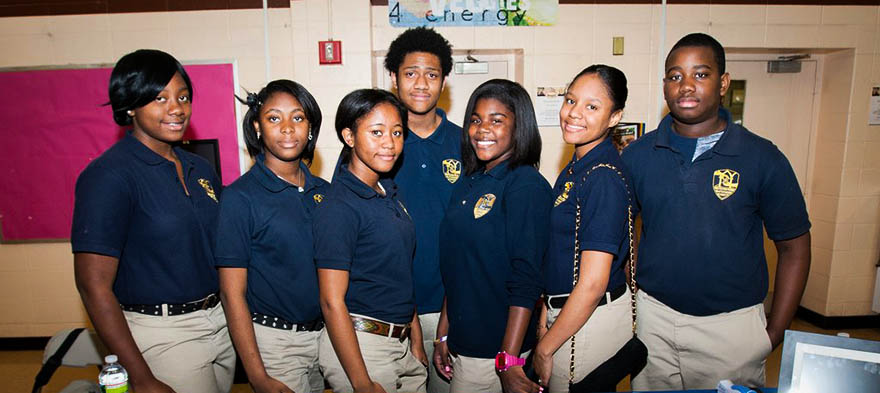
Apr 5, 2018 12:00:00 AM
Michele Mason is executive director of the Newark Charter School Fund. Since taking over in 2016, Michele has worked diligently to ensure that every student in Newark is enrolled in a great school that is preparing them for college and their future careers. By elevating the voices of parents across the city and working collaboratively with charter and district school leaders, city officials, businesses and community organizations, Michele and the Fund have led the continued evolution of a high-quality charter sector that increases public-school choices to meet every family’s needs and accelerates systemic change to the benefit of all. Among her accomplishments are working with the charter sector and Newark Public School district to promote equity and widen opportunity by creating a parent-friendly universal enrollment system through which a single application can be used for almost all charter and district schools; and establishment of the New Jersey Special Education Collaborative targeted at improving services to students with special needs in Newark and across the state. Much of Michele’s effort now is devoted to helping the sector navigate the return to local control after more than two decades of the state running Newark’s schools. A New Jersey native, Michele is a longtime advocate for high-quality education options throughout the state whose experiences ignited a fire to support, inspire, and enable kids who deserve the best opportunities possible. Prior to joining NCSF, she served as deputy director of JerseyCAN, a nonprofit organization that connects education leaders with the information they need to enact policies that will make great schools available to all New Jersey children. In 2002, Michele became the first director of college placement at the KIPP Academy in the Bronx, NY. She spent the next 10 years as a counselor supporting first-generation, college-bound students at KIPP and other institutions, including two years as director of college access and success at Newark's North Star Academy. She also spent two years leading the alumni affairs team at Teach for America – New Jersey, where she was charged with motivating and inspiring almost 1,000 TFA alumni across the state. In 2014, the Black Alliance for Educational Options awarded Michele a yearlong Bailey Sullivan Leadership Institute Fellowship as part of a program that prepares and advances the skills of educational leaders to serve as passionate and effective advocates for change. Michele serves on the boards of the Newark Education Trust, New Jersey Charter School Association, and on NJPAC'S subcommittee on Arts & Education. She is a proud auntie, Philadelphia Eagles fan, and Newark resident. Michele received her bachelor's degree from the College of William and Mary, where she was a four-year letter winner on the varsity soccer team. She has a master's degree in education policy and management from Harvard University's Graduate School of Education and an advanced certificate in nonprofit business management from Washington University-St. Louis.
The story you tell yourself about your own math ability tends to become true. This isn’t some Oprah aphorism about attracting what you want from the universe. Well, I guess it kind of is, but...
If you have a child with disabilities, you’re not alone: According to the latest data, over 7 million American schoolchildren — 14% of all students ages 3-21 — are classified as eligible for special...
The fight for educational equity has never been just about schools. The real North Star for this work is providing opportunities for each child to thrive into adulthood. This means that our advocacy...
Your donations support the voices who challenge decision makers to provide the learning opportunities all children need to thrive.
Ed Post is the flagship website platform of brightbeam, a 501(c3) network of education activists and influencers demanding a better education and a brighter future for every child.
© 2020–2024 brightbeam. All rights reserved.
Leave a Comment